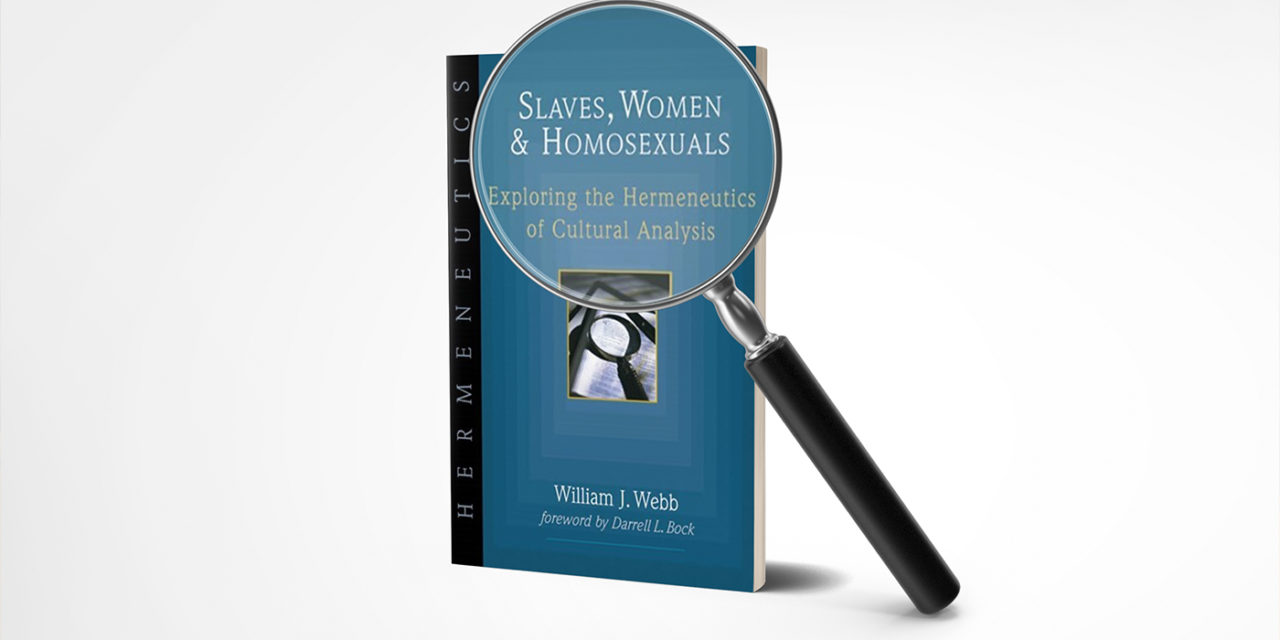
Jeff Finley
Light + Life Executive Editor
Jeff Finley is this magazine’s executive editor. He joined the Light+Life team in 2011 after a dozen years of reporting and editing for Sun-Times Media. He is a member of John Wesley Free Methodist Church where his wife, Jen, serves as the lead pastor.
by Jeff Finley
The role of women in ministry and the church’s understanding of homosexuality are separate issues, but people at opposite ends of the theological spectrum appear eager to link them.
Among people who write against women’s ordination, common rhetoric suggests that allowing women pastors will lead to acceptance of homosexual relationships. A quick internet search reveals multiple people making the case that women clergy (or egalitarian understandings of marriage) create a slippery slope leading to acceptance of gay marriage and possible rejection of Christ altogether. Meanwhile, a “Church Clarity” website rates individual churches positively if they support both LGBTQ-affirmation and women in leadership, and a prominent blogger claims “non-affirming egalitarianism is really just complementarianism” (a viewpoint that limits some roles for women).
Confused yet? If you’re part of the Free Methodist Church or another Wesleyan Holiness denomination, you may find the alleged link between homosexuality and female leadership as inconsistent with your experiences. However, if you’re from a background emphasizing patriarchy, you may be scratching your head if you read The Free Methodist Way and try to understand how a denomination can commit to God-Given Revelation while objecting to “the marginalization of women.”
One helpful resource is “Slaves, Women & Homosexuals: Exploring the Hermeneutics of Cultural Analysis” by theologian William J. Webb. InterVarsity Press Academic released this book 20 years ago, but it remains extremely relevant (possibly more relevant in 2021 than 2001). As the title reveals, Webb adds another issue — slavery — that seems initially surprising because few people publicly take a pro-slavery stand these days. However, as Darrell L. Bock notes in the foreword, slaves, women and homosexuals are all “groups that in one way or another, at one time or another, have been regarded as less than human. In addition, each of these groups have been at the center of theological reflection and debate in the last two centuries.”
Free Methodist readers may find the inclusion of slavery as interesting because abolitionism was one of the reasons our denomination began in 1860. The denomination continues to fight slavery (which persists today in forms such as human trafficking) through its Set Free Movement. Webb acknowledges that prominent Christians are no longer debating whether slavery should be allowed. Instead, he states “the winds of culture are blowing today on two significant issues: the women’s issue and the homosexual issue.” The Bible, however, has been used over past centuries by other Christian denominations and groups to defend slavery. Webb states, “The way that the Bible deals with slaves, as well as numerous other topics, should convince us of the influence of culture on the formation of the text. Scripture does not present a ‘finalized ethic’ in every area of human relationship.”
But, while not completely banning all forms of slavery, “the biblical treatment of slaves moves in a direction away from much of its surrounding world.” The Bible proposes a “generous number of days off work” for slaves, “elevated status in worship setting,” “the release of Hebrew slaves after six years,” “provisions given to slaves upon release” and many other accommodations that differed from ancient customs. Webb notes, “These biblical alterations brought greater protection and dignity for the slave compared to the treatment of slaves in surrounding environments.”
The Bible is used by some Christians to restrict women from church leadership positions or shared leadership in marriage. In modern culture, the Bible may seem like it holds women back. The opposite was true in ancient culture, however. Webb notes, “As one compares the biblical texts about women to their surrounding foreign context and correlates that comparative picture with domestic and canonical movement, a certain impression emerges. On the whole, the biblical material is headed toward an elevation of women in status and rights.”
The same cannot be said of people participating in homosexual activity, however. According to Webb, “homosexuality was openly practiced in the surrounding cultures” during biblical times. “However, the Israelite and Christian communities did not accept these sexual practices in their theology, in their temple worship or in their everyday community living. … Scripture moves in a particular direction relative to these cultures by its broad-sweeping ban of homosexuality within the covenant community.”
Webb highlights portions of Scripture that have cultural or pastoral implications (written to address a particular problem in a local church or community) that should not necessarily be followed in a literal way today. For example, we probably do not “greet one another with a holy kiss” (2 Corinthians 13:12), but we hopefully live out the spirit behind the command. We don’t “give beer to those who are perishing” (Proverbs 31:6 NIV 1984), but we may help a dying person get medicine to reduce pain. Farmers aren’t likely to keep the edges of their fields unharvested or intentionally leave some grapes in their fields (Leviticus 19:9–10, 23:22), but they may give part of their harvest to a food pantry, which would be consistent with the biblical principle of setting aside some food for people in poverty. Webb believes church leaders “have not been particularly clear in explaining why we have discontinued certain practices yet continued others. The lack of explanation and consistency has often left thorny problems for the next generation of Christians.”
How can Christians determine which passages are cultural or transcultural (applicable to multiple cultures)? How can we engage with Scripture without becoming legalistic or alternately losing the Free Methodist “conviction that the Bible is the inspired Word of God and our final authority in all matters of faith and practice”? Webb spends much of his book outlining criteria that can be used to distinguish between a passage’s cultural significance (such as varying standards for the length of a man’s hair) and “the spirit-based component of meaning within the text’s words.”
Redemptive Movement
Webb promotes a “redemptive-movement hermeneutic.” A hermeneutic is an approach to studying the Bible that includes considering “what aspects of the text should we continue to practice and what aspects should we discontinue or change due to differences between cultures.” Webb’s approach to understanding the Bible seeks to avoid a “static hermeneutic,” which may take every word literally but miss the overall meaning, or a “secular or radical hermeneutic,” which may miss God’s revelation and provide little direction for how to live or what to believe. He writes, “Only a view that utilizes the redemptive spirit within Scripture as its core can construct an enduring connection between the ancient and modern worlds.”
If biblical values include freedom for slaves and equality for women, why doesn’t the Bible insist upon ideal conditions? Webb explains, “Change is always difficult. God brings his people along in ways that were feasible adaptations.” Using the redemptive-movement approach, he contends that “scriptural movement provides a crucial factor for setting the direction of movement should further movement be appropriate. In this respect, the [Bible’s] women texts, like the slavery texts, are generally ‘less restrictive’ or ‘softening’ relative to the broader culture, while the homosexuality texts are ‘more restrictive’ or ‘hardening’ relative to the surrounding environment.”
Webb examines the argument of some progressive Christians that the Bible only condemns homosexual abuse without opposing covenant relationships between two people of the same gender, but he doesn’t find scriptural support for that viewpoint. He insists, “Although it is not a popular stance today, only by retaining heterosexuality as normative and homosexuality as aberrant do we perpetuate the redemptive spirit of that text, as it was invoked in the original setting. We need to journey with the redemptive spirit of that text and always move in a direction toward which the whole of Scripture taken together points.” While not affirming homosexual activity, he does express “compassion for those who struggle with homosexual feelings and behavior.” He also warns that many Christians oppose homosexual activity while engaging in inappropriate heterosexual activity and, therefore, “undermine anything we have to say to the homosexual community about its sexual ethic.”
Webb is a Baptist, not a Free Methodist, but his views on gender, sexuality and slavery seem to fit well with the positions of the Book of Discipline and the spirit of The Free Methodist Way. He thoughtfully navigates some of the most contentious issues of our day in a biblically faithful way. The book’s title may raise a visitor’s eyebrows if you leave it on your coffee table (I know this from personal experience), but it’s valuable in understanding how to apply God’s transcultural values to our morally ambiguous world.
+

Jeff Finley
Light+Life Executive Editor
Jeff Finley is this magazine’s executive editor. He joined the Light+Life team in 2011 after a dozen years of reporting and editing for Sun-Times Media. He is a member of John Wesley Free Methodist Church where his wife, Jen, serves as the lead pastor.










Thank you, Jeff, for this overview of Webb’s book. It is a part of my unread collection! So much to read, so much read. It’s helpful when others share what they have read.
Thank you, Pastor Maybray, for the comment. I can definitely relate. I keep buying more books than my schedule allows me to read.
Excellent book — thanks. I have used it in my writing, including in my book on homosexuality.
Thank you, Dr. Snyder. I plan to put your book on my to-read list.
Great article!
Thank you, Pastor Shaw!